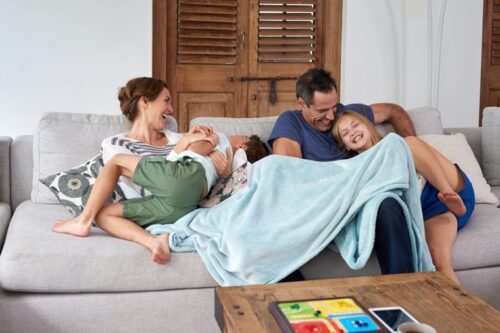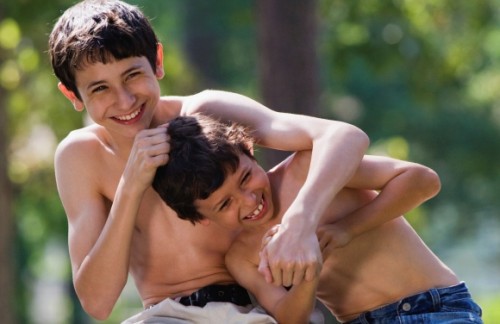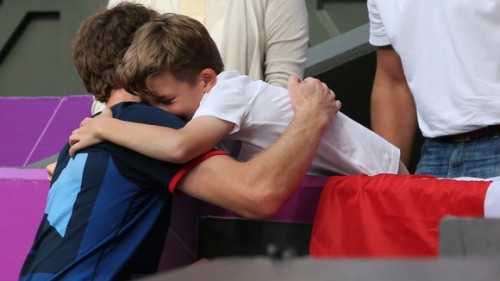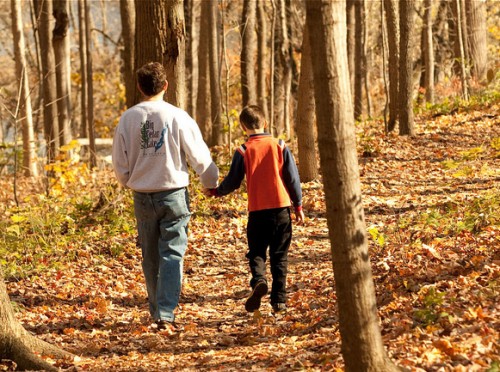Clinical
Conditions
- ADHD and Puberty – Part Two
- ADHD, ADD, HK, ADHK, LDHK, MBD, Hyperactive, “Slow”
- ADHD, Hyperactivity: Don’t JUST Take My Word For It
- ADHD: Treatment Followup – Lifelong Learning
- Amblyopia and Developmental Dysplasia of the Hip
- As Much As You Want To Know About Autism – Autistic Spectrum Disorder (ASD)
- Autism: Autistic Concert Pianist
- Best Treatment For ADHD: Success In Something
- Childhood Diabetes and a New Medicine – Part 1
- Childhood Diabetes and a New Medicine – Part 2
- Childhood Diabetes Update
- Hyperactivity and Puberty – “ADHD on Testosterone”
- Hyperactivity Treatment: Cognitive Training, Medication or Both
- Hyperactivity Treatment: Is There ANYTHING That Really Works?
- Hyperactivity Treatment: What Really Works… Really
- Hyperactivity: First, The Diagnosis
- Hyperactivity: The Boy or Girl – The Patient
- Leg Pain on One Side in Children – Perthes Disease
- New Guidelines: Autism, Flu and ACL Tears
- Night Terrors and Nightmares
- Speech “Non-fluency” – Stammering, Hesitancy, Delay, and Stuttering in children.
- The Charles Bonnett Syndrome: An Under-reported Phenomenon
- To Understand Autism
- What We Know About Autism
Doctors
- #40 Lawrence (Larry) Einhorn (1942-)
- 10 Medical Breakthroughs Unaccepted At First – Part One
- 10 Medical Breakthroughs Unaccepted At First – Part Three
- 10 Medical Breakthroughs Unaccepted At First – Part Two
- 15 Accidental Medical Discoveries – Part II
- 15 Accidental Medical Discoveries – Part III
- 50 Influential Docs in History: Nikolay Ivanovich Pirogov (1810-1881)
- Accidental Medical Discoveries – New Series
- Charles D. Kelman
- Cicely D. Williams
- Communication With Your Doctor – when things don’t seem to be going right
- Cost Effective Medicine – why can’t we seem to find it?
- Dame Cicely Saunders – Nurse, Doctor and Founder of Modern Hospice
- Doctor Helen Brooke Taussig – World Renowned Cardiologist
- Doctor Henry Gray (1827-1861) – Anatomist, Author, Devoted Uncle
- E. Donnall Thomas, Joseph Murray-Most Influential Doctors
- Elisabeth Kübler-Ross
- Elizabeth Blackwell
- George Papanicolaou: Cytopathology, Cancer
- Grandma’s Who Haven’t Seen Measles
- James Parkinson: Social Activist and Advocate, Parkinson’s Disease and Palentology
- John Snow: Water Pumps, Cholera and Epidemiology
- Joseph Kirsner: Colon Cancer, IBS, Educator, Doctor
- Mahmut Gazi Yaşargil: Micro-Surgery, Neurologic Pioneer
- Medical Breakthroughs, Unaccepted, Rejected and Attacked (at first)
- Most Influential Doctor: David L. Sackett – Evidence-based Medicine
- Obscure Medical Terms
- Robert Koch: Modern Bacteriology
- Stanley Dudrick: Total Parenteral Nutrition
- Stanley Prusiner: Neurodegenerative Diseases
- Victor McKusick: Medical Genetics
- Virginia Apgar: Blue Babies
- Watson, Crick, DNA, Nobel Prize
- When Doctors Don’t Do A Good Physical Exam – Patients Loose
- William Harvey – Discovery of Circulation
- Yogi Berra’s Tips For Practicing Medicine and Parenthood
- Zora Janžekovič – Pediatric Burn Pioneer
Illness
- 10 Travel Diseases to Consider – Part 2
- 10 Travel Diseases to Consider Before and After the Trip
- 2014: New Medical Guidelines Intro/Index
- Adolescent Acne – diagnosis and treatment methods
- Alcohol Intoxication in Children
- Allergy (atopy) in infants, children and adolescents
- Allergy: Spring Hay Fever and Otherwise
- Appendicitis
- Attention Deficit Hyperactive Disorder (ADHD) Series: Intro/Index
- Autism: Autistic Concert Pianist
- Back To School: Series Intro/Index
- Bed Wetting (Enuresis) – 1
- Bed Wetting (Enuresis) — Part 2
- Cardiac Arrest: Commotio Cordis – Prevention, Return To Play
- Cardiac Arrest: Commotio Cordis – Treatment and Prevention
- Child Cardiac Arrest: Intro/Index
- Child Diseases Parents Should All Know About – Part 1
- Child Diseases Parents Should All Know About – Part 2
- Child Diseases Parents Should All Know About – Part 3
- Child Diseases Parents Should All Know About – Part 4
- Child Diseases Parents Should Know – Part 10
- Child Diseases Parents Should Know – Part 5
- Child Diseases Parents Should Know – Part 6
- Child Diseases Parents Should Know – Part 7
- Child Diseases Parents Should Know – Part 8
- Childhood Rashes and Numbered Diseases: Intro/Index
- Children’s Back To School Medical Problems – Part 1
- Children’s Back To School Medical Problems – Part 2
- Children’s Bacterial Skin Infections
- Common Foreign Bodies Found In Children and Teens
- Common Pediatric Recreation and Sport’s Injuries – Part Two
- Common Pediatric Sports and Recreational Injuries – Fractures
- Conjunctivitis (Pink Eye)
- Constipation and Soiling in Children
- Difference Between Flu and Colds
- Diseases All Parents Should Know Series: Intro/Index
- Diseases Parents Should Know, 9 – Flu, Impetigo, Ringworm
- Drugs and Breast Milk – Alcohol Withdrawal
- Five Things You Should Know About Concussion and Contact Sports
- Head Injury in Children
- Head Lice and Tea Tree Oil
- Heat Illness In Children: Heat Stroke, Rash, Exhaustion
- Hospitalized Newborns – One
- How to Take A Temperature: Child
- Infant Colic
- Kawasaki Disease: A Parent’s Guide
- Keeping Sick Kids Home from School or Daycare
- Leg Cramps in Children
- Marijuana: Test What You Know
- Medical Marijuana
- Medical Marijuana – What, If Anything, Is it Good For?
- Medicine: Do Nothing Whenever Possible
- Meningitis In Children
- Migraine Headache in Children
- Mosquito Illnesses – Zika, Dengue and Others
- New Concussion Biomarker Possible For Children’s Head Injuries
- New Guidelines: Autism, Flu and ACL Tears
- New Kids Health Guidelines In 2014
- Numbered Diseases of Childhood: FIFTH Disease – Erythema Infectiosum
- Numbered Diseases of Childhood: FIRST Disease – Measles
- Numbered Diseases of Childhood: FOURTH Disease – Filatov-Dukes’ Disease
- Numbered Diseases of Childhood: Rashes
- Numbered Diseases of Childhood: SECOND Disease – Scarlet Fever
- Numbered Diseases of Childhood: SIXTH Disease – Roseola
- Numbered Diseases of Childhood: THIRD Disease – Rubella
- Otitis Externa: Swimmer’s Ear, More Than An Annoyance
- Parenting: How To Give Medicine To A Child
- Poison Ivy, Oak and Sumac in Children
- Power Lawn Mower Injuries in Children
- Respiratory Hazards of Wood Stoves
- Scabies “Seven Year Itch” – a Comeback in Children
- Scabies in Children
- Spinal Taps in Children
- Stings and Bites in Children
- Sudden Cardiac Death in Child Athletes
- Summer Childhood Illnesses and Injuries – Part 2
- Sunburn in Infants, Children and Adolescents
- Ten Travel Diseases: Intro/Index
- Tonsillectomy – part two
- Tonsillectomy – Risks and Benefits
- Torn Anterior Cruciate Ligament (ACL) – Lachman Test
- Treating Children’s and Teen’s Colds
- Treating Cough in Infants, Children and Teens
- Treating Fever in Infants, Children and Teens
- Urinary Tract Infections in Children
- What’s Eating You? Bedbugs, Mites and Lice
- What’s Eating You? Ticks and Fleas
Parenting
- A Good Book is Like A Secret Door
- Advice to Ignore, Things to Remember and Stuff Not To Stress About – Part 3
- Am I Ready To Have Sex?
- Children’s Ability To Read
- Children’s Self Esteem
- Choose Your Battles With Teens Over Hair and Clothing
- Choosing a Name For a Child
- Discipline in a Non-Confrontational Parent
- Discipline, Parents, Kids and “Natural Consequences”
- Doctor’s Talking About Puberty and Sex
- Feeling – A Special Sense
- Golden Rule of Parenting: Sleeping Through The Night
- Growing Up – When Did THAT Happen?
- Healing Hugs – Sometimes the Best Medicine
- Instilling Concern and Respect For Others In Children and Teens
- Julie Lythcott-Haims: How to raise successful kids — without over-parenting
- Just A Part Time Kid – Divorce Part 1
- Just A Part Time Kid – Divorce Part 2
- Medicine: Do Nothing Whenever Possible
- Most Important Parenting, When It Appears The Least
- Nose Picking In Public a Habit To Break
- Parenting About Sex, Pressure and Promiscuity
- Parenting Advice to Ignore Series: Intro/Index
- Parenting Advice to Ignore, Things to Remember and Stuff Not To Stress About – Part 1
- Parenting Advice to Ignore, Things to Remember and Stuff Not To Stress About – Part 2
- Parenting Children and Teens to Be Achievers
- Parenting Is Saying No
- Parenting: 5 Dangerous Things You Should Let Your Kids Do
- Parenting: A Good Night’s Sleep, Infant Sleep Training
- Parenting: An Astronauts Guide To Optimism
- Parenting: Attitudes – Unintentional Learning
- Parenting: Be selfish
- Parenting: Dealing With Bad “Tween” Behavior
- Parenting: Discipline
- Parenting: Draw your own circles
- Parenting: Four bad ages
- Parenting: Good behavior is expected, not rewarded
- Parenting: Good Night’s Sleep
- Parenting: How To Give Medicine To A Child
- Parenting: Loss and Grief – My Velveteen Rabbit
- Parenting: My Malaprop Mom
- Parenting: Never Trust Newborns
- Parenting: Picky Eaters
- Parenting: Seventh Grade is a pivot point
- Parenting: Take Credit For The Good Things About Your Children, Blame Others For The Bad
- Parenting: Talk To Strangers
- Parenting: The Two Greatest Barriers To Parenting – Money and Education
- Parenting: Toilet Training Is Not a Parenting Test
- Real Pediatrics: Dr. Gregory Alan Barrett
- School PHOBIA
- Sibling Rivalry
- Sleep Problems: Older Children, Toddlers, Stumbling Blocks
- Stress In Children
- Teaching Teens About Healthy Relationships
- Teenage Sexuality
- Teenagers: Maturing and “THE Talk”
- Telling Truth or Lies to Children: Parenting
- The Simple Power of Hand Washing
- Three Magic Questions of Breastfeeding
- Traveling With Children – a Secret Weapon
- When Children Travel Alone
- When I Grow Up – I Wanna Be Happy
- When Should School Start For Teens
- Why Kids Today Don’t Know How Much Fun a Road Trip Can Be
- Why So Many Illnesses In My Child
- Yogi Berra’s Tips For Practicing Medicine and Parenthood
Wellness
- Advice to Ignore, Things to Remember and Stuff Not To Stress About – Part 3
- Am I Ready To Have Sex?
- An Eye Exam On A Smart Phone?
- Body Odor
- Boys and Body Image
- Breastfeeding – Recent Findings and Recommendations
- Breastfeeding and Human Milk
- Breastfeeding Series: Intro/Index
- Child/Teen Immunization Schedule, 2014: Changes You Should Know
- Childhood Immunization Schedule: Intro/Index
- Childhood Immunization: Updated 2013 guidelines
- Children’s Athletic Warmups
- Children’s Fitness: The Bleep Test
- Children’s Health and Fitness: Intro/Index
- Children’s Health: Less Healthy Than 50 Years Ago
- Children’s Jogging
- Children’s Sleep: Series Intro/Index
- Children’s Sports
- Children’s TV Screen Time: Consequences, Limits, Interventions – Part 1
- Dental Care of Children and Teens – causes and prevention of caries (cavities)
- Dental ID of Children
- Do You Take Your Body For Granted
- Emergency Medical System (EMS) – Prevention
- Health Proverbs: Where Did They Come From?
- How To Kill A Child Athlete
- Immunization Schedule: Birth to Eighteen
- Immunization v. Vaccination: A Story of Gullibility, Fear, Despicable Avarice and Scams
- Immunization v. Vaccination: A Story of Gullibility, Fear, Despicable Avarice and Scams – Part 2
- Infant Circumcision
- Infant Circumcision Now Both Advised and Safer
- Innocent Heart Murmurs in Children
- Internet Vaccination Advice Nearly Killed Their Son
- Measles: The Real Evidence
- Meditation For Kids and Time-Outs
- More Medical Proverbs – Do They Work?
- New Concussion Guidelines For Children’s Sports
- Parenting About Sex, Pressure and Promiscuity
- Parenting Advice to Ignore, Things to Remember and Stuff Not To Stress About – Part 1
- Parenting Advice to Ignore, Things to Remember and Stuff Not To Stress About – Part 2
- Parenting: Four bad ages
- Parenting: Never Trust Newborns
- Parenting: Toilet Training Is Not a Parenting Test
- Puberty and Underwear: Boxers, Briefs or Commando?
- Puberty: Psychological Stages
- Puberty: Tanner Stages – Boys
- Puberty: Tanner Stages – Girls
- Puberty: Tanner Stages and Growth
- Reasons Why Parents Choose Not To Immunize Their Children
- Safe Sleep For Infants: SIDS & SUIDs
- Sexual Attraction and Orientation
- Teenage Sexuality
- Teenagers: Maturing and “THE Talk”
- The Pediatric Physical Examination
- Three Magic Questions of Breastfeeding
- Vaccine Information Statements (VISs)
- What’s Wrong With Our Food System: Birke Baehr
- Why We Need a “Good Night’s Sleep”
- Yoga For Children and Stress Reduction
- You’ve Come A Long Way Baby
Commentary
FAQ
Link
Recent News
Resources
Series
/* --------------------------------------------------------------------------------------------- END added code trial ------------------------------------------------------------------------------------------------ */Showing posts from: Personality/Social
Parenting: Talk To Strangers
In this delightful talk about talking to strangers, Stark explores the overlooked benefits of pushing past our default discomfort when it comes to strangers and embracing those fleeting but profoundly beautiful moments of genuine connection. [Additional communication video]
Talk To Strangers
Most aren’t dangerous and if we don’t, we lose
Kio Stark has always talked to strangers. She started documenting her experiences when she realized that not everyone shares this predilection. She’s done extensive research into the emotional and political dimensions of stranger interactions and the complex dynamics how people relate to each other in public places.
She authored the TED Book When Strangers Meet, in which she argues for the pleasures and transformative possibilities of talking to people you don’t know.
Her novel Follow Me Down began as a series of true vignettes about strangers placed in the fictional context of a woman unraveling the eerie history of a lost letter misdelivered to her door. Additionally, she wrote Don’t Go Back to School, a handbook for independent learners.
She writes, teaches and speaks around the world about stranger interactions, independent learning and how people relate to technology. She also consults for startups and large companies helping them think about stranger interactions among their users and audiences.
Most Important Parenting, When It Appears The Least
Julie Lythcott-Haims: How to raise successful kids — without over-parenting
High Expectations and Micromanaging
NOT how to raise an adult
The dean of freshmen at Stanford, Julie Lythcott-Haims, will tell you about her discoveries regarding helicopter parenting based on her experiences with students and her two teenage sons.
“By loading kids with high expectations and micromanaging their lives at every turn, parents aren’t actually helping,” she observes with passion and wry humor. She asks parents to “stop defining their children’s success via grades and test scores.” Instead, she says, “they should focus on providing the oldest idea of all: unconditional love.”
We called it “over-coercion” when I studied psychology in school–it’s the same thing with the same results no matter what you call it and when it occurs and often leaves a fledgling adult wondering “Will this life ever turn out to be worth it?”
It’s as if parents are just afraid they (the kids) won’t have a future they can brag about to their friends and put stickers on the car bumpers about. Sort of: “hey kid, I don’t think you can achieve any of this without me.”
From her talk:
When we treat grades and scores and accolades and awards as a purpose of childhood all in furtherance of some hoped for admissions to a tiny number of collages or an entrance to a small number of careers—and even though we might help them achieve some short term wins by over helping—all of this comes at a long term cost of sense of self.
We should be far more concerned that they have the mind-set, the skill-set, the “well”-ness [and I add the “will”-ness] to be successful wherever they go.
Our kids need us to be a little less obsessed with grades and scores and a whole lot more interested in childhood providing a foundation for their success—built on things like: love… and chores.
The longest longitudinal study of humans ever conducted (called the Harvard grant study) found that professional success in life (what we want) comes from having done chores as a kid – and the earlier you started the better. That a roll up your sleeves and pitch in mind-set—a mind set that there’s some unpleasant work, someone’s gotta do it, it might as well be me— a mindset that says I will contribute my effort to the betterment of the whole – is what gets you ahead in the work place.
Happiness in life comes from Love – not from love of work – love of humans. Childhood need to teach our kids love in all aspects. They need to matter to us as humans – not because of their GPAs –
“I was treating my little Saywer and Avery like little Bonsai trees. But I’ve come to realize, after working with 1000s of other peoples kids, that my kids aren’t Bonsai trees, they’re wildflowers—of an unknown genus and species and it’s my job to provide a nourishing environment to strengthen them through chores and to love them so that they can love back — and to support them to become their glorious selves.”
Children’s Self Esteem
I met 13 year-old Shawn (not his real name) semi-conscious in the intensive care unit many years ago.
He had been dumped off on the front lawn of his foster home, stuporous, by some kids who sped away in their car.
(more…)
Sibling Rivalry
After many years I can still picture in my mind a little nine-year-old boy standing by the isolette containing his two-week old baby brother.
Healing Hugs – Sometimes the Best Medicine
I definitely feel that the best gifts in parenting are the small things; for example, "healing hugs."
Some time ago in my medical school training, I was assigned to a hospital emergency room. A child about thirteen was brought in by ambulance (more…)
Feeling – A Special Sense
Recently a young patient brought me a special gift. Although he was ill, he had taken the time to gather one of the first autumn leaves which had begun to turn color.
He explained to me that he had picked the leaf recently on a “five senses” walk he had taken with his teacher.
(more…)






